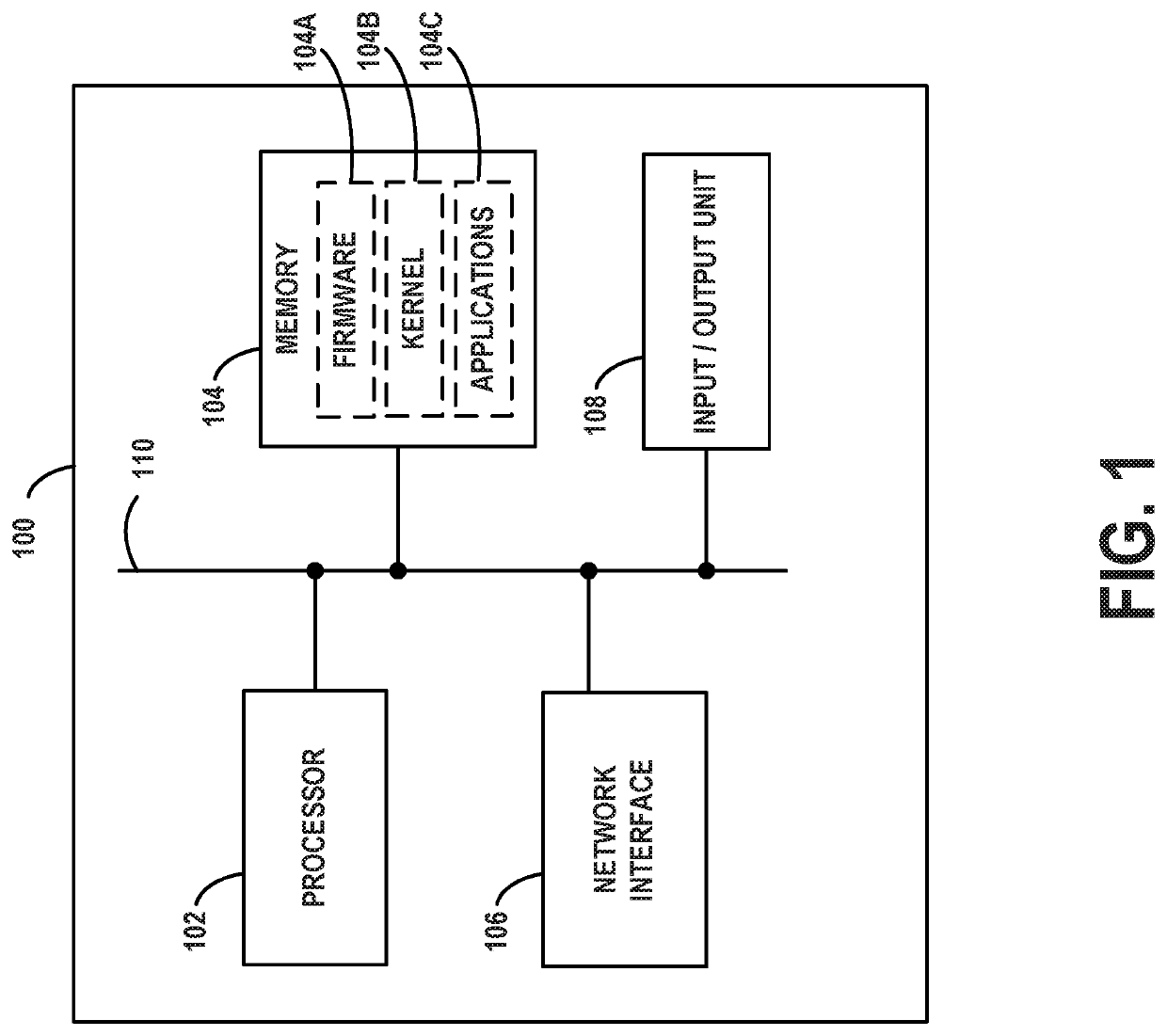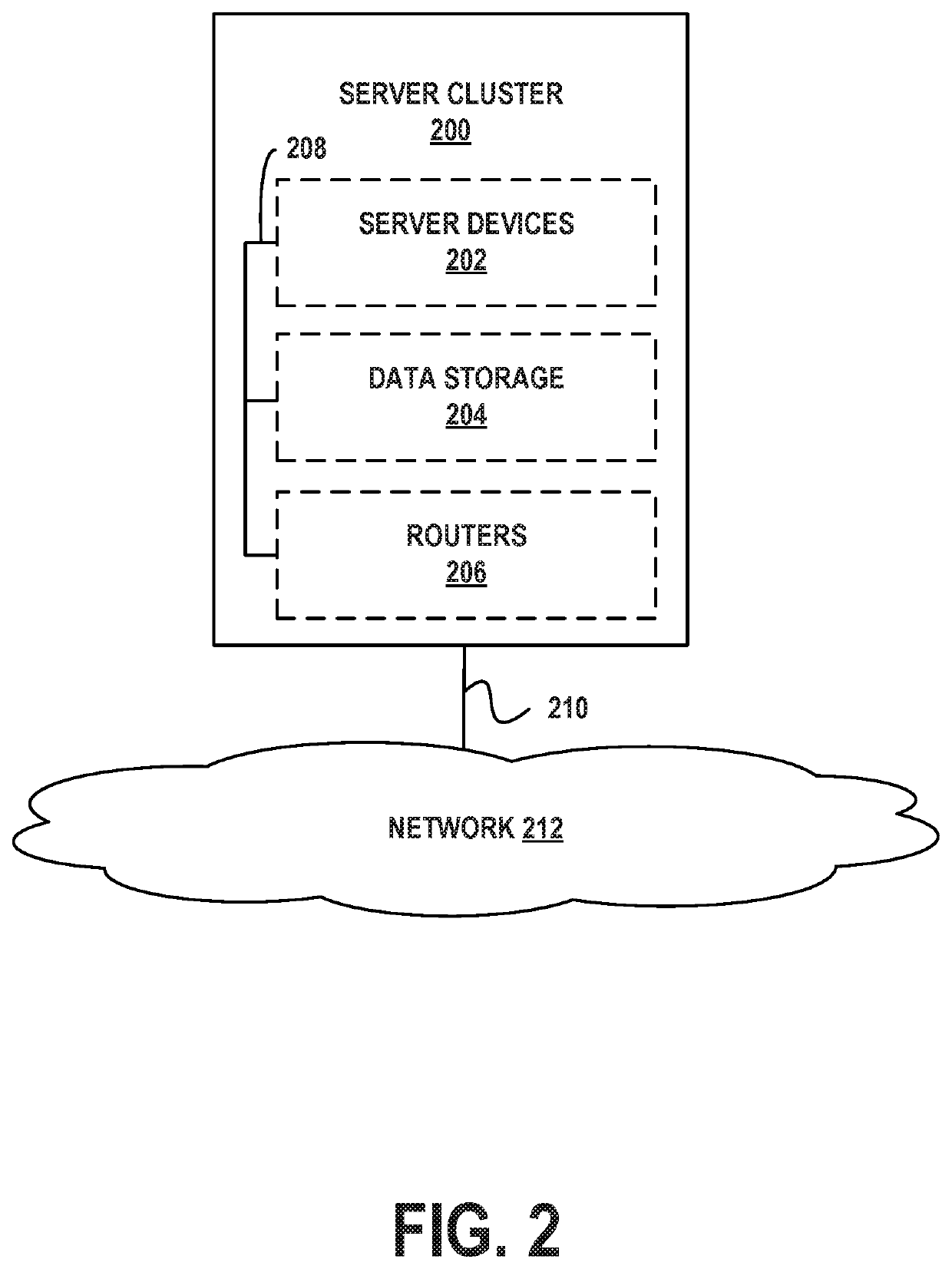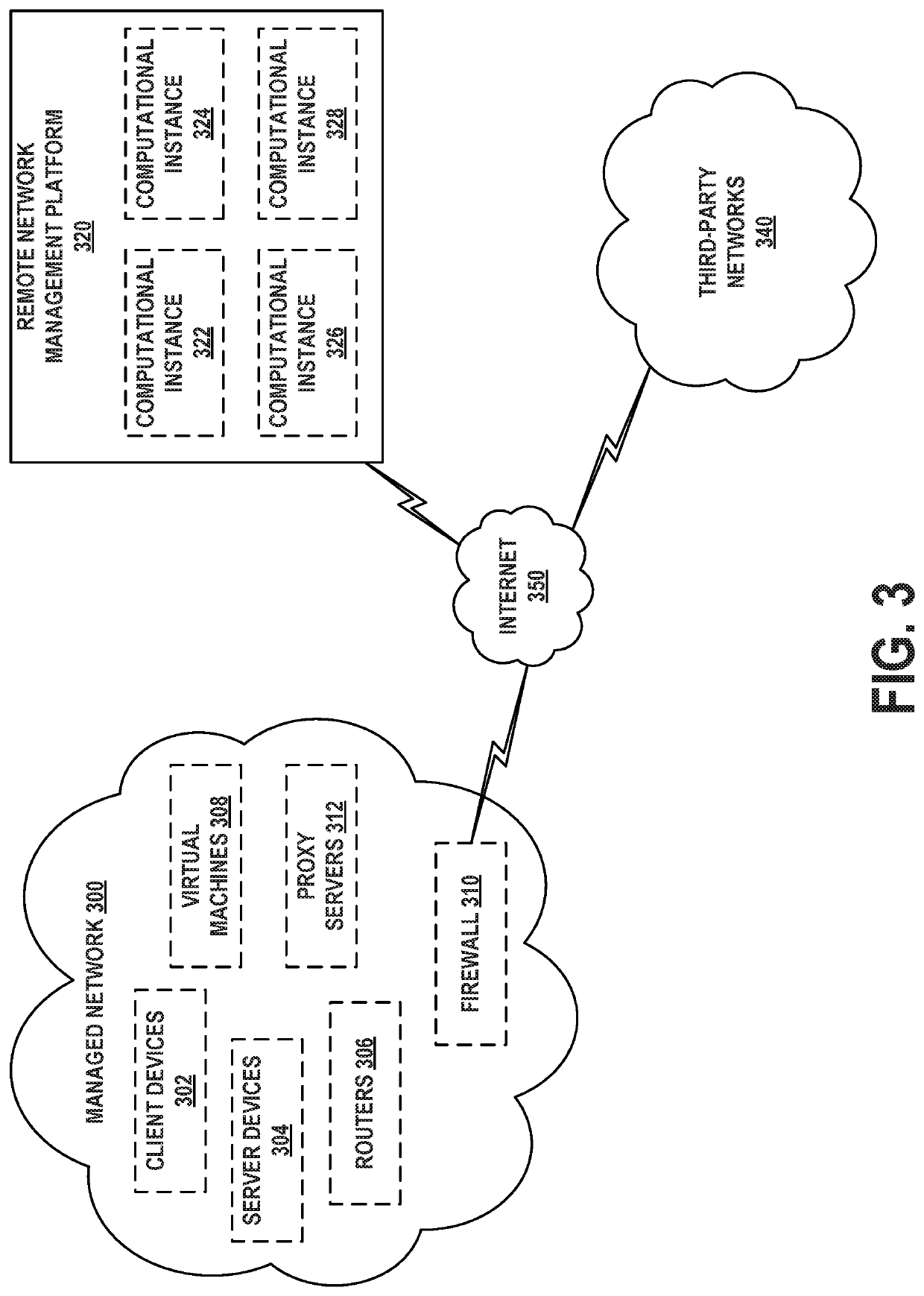It negatively impacts an enterprise's ability to run and grow its operations, innovate, and meet regulatory requirements.
The enterprise may find it difficult to integrate, streamline and enhance its operations due to lack of a single
system that unifies its subsystems and data.
The exact physical location,
connectivity, and configuration of these computing devices may be unknown and / or unimportant to
client devices.
To the extent that these computing tasks can be performed in parallel, such a distribution of tasks may reduce the total time to complete these tasks and return a result.
As a consequence, a security breach in this
system may
impact all customers' data, creating additional risk, especially for entities subject to governmental, healthcare, and / or financial regulation.
Furthermore, any
database operations that
impact one customer will likely
impact all customers sharing that database.
Thus, if there is an outage due to hardware or software errors, this outage affects all such customers.
Likewise, if the database is to be upgraded to meet the needs of one customer, it will be unavailable to all customers during the
upgrade process.
Often, such maintenance windows will be long, due to the size of the
shared database.
Maintenance down time is limited because the database only contains one customer's data.
These tasks may result in proxy servers 312
logging on, or otherwise accessing information from the particular device.
Thus, if the
server device is taken out of operation for maintenance, it is clear that the employee onboarding service and payroll service will be impacted.
However, for various reasons, including those described below in this section, some manners of
processing user queries, and thus retrieving data that the user desires, can be challenging,
time consuming, or otherwise inefficient.
Because of this, the keyword-based search engines can produce unsatisfactory search results, often returning irrelevant data.
Further, in some cases, excessive amounts of data (e.g., millions of documents) are retrieved in response to a simple keyword query, which often makes it difficult for a user to find the needed information.
The undesirable performance of keyword-based search engines can at times be attributable to it being difficult for keywords to capture and understand complex search
semantics that a user seeks to express in the query.
Unfortunately, however, FAQ-based search engines can also be limited in their understanding the user's query because the FAQ-based search engines might only look up frequently occurring words in the query, and might not perform any deeper syntactic or semantic analysis.
Unfortunately, the are some disadvantages of using BNF grammars to parse queries.
While BNF grammars can provide translations for user queries that are meaningful and reflect the relationships between the elements of such queries, BNF grammars might not provide mechanisms for enhancements, such as the addition of new BNF grammars.
In these and other scenarios, however, the BNF grammars might not provide a mechanism to update and change the words, phrases, and grammars without an administrator having to structurally modify the BNF definition itself—namely, a modification to the BNF grammars or
library of the BNF.
However, with more complex
sentence structures, traditional algorithms can provide multiple combinations of words, thus making it more difficult to determine the most likely combination.
However, a penalty of zero might not always be possible.
Thus, in these and other examples where there are numerous manners in which to interpret a query, penalties might not be as sufficient as desired for ascertaining the intended interpretation of the query.
As data searches within the managed network increase and / or otherwise change in complexity or frequency, it can be difficult for the remote network management platform to provide services that efficiently and consistently parse user queries and obtain desired results.
More particularly, using these rules, the parser can match queries that have the descriptive word “nice” being used to describe a U.S. city, but might not match queries that use the word “nice” to describe a European city, due to the possible
confusion with the European city of Nice, France.
Furthermore, for some types of entity-specific information, it can be difficult to specify all possible definitions in a grammar, such as all possible physical addresses of buildings associated with the entity.
However, when computing device 700 determines that a term does not match any term in the list, this might be indicative of a linguistic error in the term, and thus, computing device 700 can responsively perform the process to correct the linguistic error.
However, because the term “icnident” is only one word, and not two or more words having spaces between them (e.g., “New York”), such a rule might not be applied in this situation.
The number of candidates that are produced during fuzzy matching can be extensive, particularly when terms contain numerous characters and when a query contains numerous terms that might have linguistic errors.
In these scenarios, it can take the parser longer to parse through the numerous different candidates and / or can cause the parser to spend time on potentially weaker candidates (e.g., candidates that might not closely resemble a word in the English language).
 Login to View More
Login to View More  Login to View More
Login to View More 


